Sigma Xi Distinguished Lecturers, 2012-2013
Abstracts
Potential hosts should contact lecturers directly to book events. In making arrangements, hosts should be specific about dates, lecture topic, scope of the lecturer's visit and any special accommodations that may be called for.
Each lecturer has designated his or her topic(s) for three different types of audiences. Where more than one level is shown, the lecture can be adjusted to the needs of the audience:
- P (Public)
Aimed at presenting scientific issues of general concern to a public audience.
- G (General)
Intended for a normal Sigma Xi audience of both scientists and other scholars representing a broad range of disciplines.
- S (Specialized)
Aimed at scientists and students in fields that are closely related to that of the lecturer.
American Meteorological Society Lecturer
Richard A. Anthes 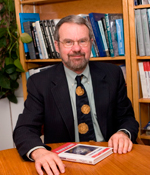
President, University Corporation for Atmospheric Research
Email: anthes@ucar.edu
Phone: 303-497-1652
- Demons and Butterflies—Weather predictions and predictability theory(P,G)
- Climate change—what, why and how do we know? (P,G)
- Weather forecasting over the ages-from folklore to science (P,G)
- Hurricanes, weather patterns and climate change—why a few degrees matter. (P,G)
Richard Anthes is President Emeritus of the University Corporation for Atmospheric Research (UCAR), which manages the National Center for Atmospheric Research (NCAR). He is a highly regarded atmospheric scientist, author, educator and administrator. Dr. Anthes has published over 100 peer-reviewed articles and books and participated on or chaired over 40 different U.S. national committees. He has also received numerous awards for his sustained contributions to the atmospheric sciences. In October 2003 he was awarded the Friendship Award by the Chinese government, the most prestigious award given to foreigners, for his contributions over the years to atmospheric science and weather forecasting in China. He was co-chair in 2004-2007 of the first ever National Research Council “Decadal Survey” for Earth Science observations from space. Dr. Anthes served as President of the American Meteorological Society in 2007.
Gilda Barabino
Professor and Associate Chair, Georgia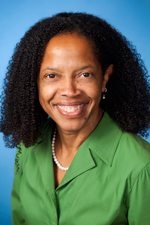 Institute of Technology and Emory University
Institute of Technology and Emory University
Email: barabino@gatech.edu
Phone: 404-385-5016
Website: www.bme.gatech.edu/groups/barabino/
- Learning in Research Settings: Role of Identity Formation (P,G,S)
- Environmental Effects on Tissue-Engineered Cartilage (G,S)
- Investigation of Sickle Cell Disease using Engineering Approaches(P,G,S)
Gilda Barabino is a Professor and Associate Chair for Graduate Studies in the Department of Biomedical Engineering at Georgia Institute of Technology and Emory University. She recently served as the inaugural Vice Provost for Academic Diversity and established a legacy to strengthen diversity and inclusion at Georgia Tech. Prior to her appointments at Georgia Tech and Emory, she rose to the rank of Full Professor of chemical engineering and served as Vice Provost for Undergraduate Education at Northeastern University. Her research focuses on sickle cell disease, orthopedic tissue engineering and diversity in science and engineering. She received her B.S. degree in Chemistry from Xavier University of Louisiana and her Ph.D. in Chemical Engineering from Rice University. She is a Fellow of the American Association for the Advancement of Science, the American Institute for Medical and Biological Engineering and the Biomedical Engineering Society.
Mark Batzer
Boyd Professor and Mary Lou Applewhite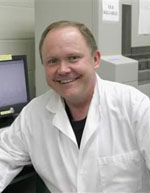 Distinguished Professor, Louisiana State University
Distinguished Professor, Louisiana State University
Dept. of Biological Sciences
Louisiana State University
202 Life Sciences Bldg.
Baton Rouge, LA 70803
Phone: 225-578-7102
Email: MBATZER@LSU.EDU
http://batzerlab.lsu.edu
- The Impact of Retrotransposons on Human Genome Evolution (G,S)
- Mobile Elements and Primate Genomic Variation (G,S)
- Mobile Elements: a Novel Source of Primate Genomic Variation (G,S)
Dr. Mark Batzer is currently an LSU System Boyd Professor and Dr. Mary Lou Applewhite Distinguished Professor, Department of Biological Sciences at Louisiana State University. Dr. Batzer’s research interests focus on comparative genomics, mobile DNA, forensics, and computational biology. Dr. Batzer received his B.S. Degree from Michigan State University in 1983, and continued there until 1985, when he received his M.S. In 1988, he completed his doctorate in Genetics/Zoology at LSU, after which he completed a postdoc in Molecular Genetics at the LSU Health Sciences Center in 1992. Dr. Batzer completed his postdoctoral education in the Human Genome Center at Lawrence Livermore National Laboratory, where he continued as a Biomedical Scientist until 1995. Subsequently, Dr. Batzer joined the Dept. of Pathology at the LSU Health Sciences Center in 1995, and was promoted to Associate Professor in 1998. Dr. Batzer moved to the Dept. of Biological Sciences at LSU as a Full Professor in 2001. Dr. Batzer has previously been named the George C. Kent Professor of Life Sciences (2005), and the Andrew C. Pereboom Alumni Departmental Professor (2006) prior to being named LSU System Boyd Professor and Dr. Mary Lou Applewhite Distinguished Professor in 2008. Dr. Batzer has received an LSU Alumni Association Faculty Excellence Award (2005), LSU Distinguished Faculty Award (2007) and been named an LSU Rainmaker (top 100 faculty in research and creativity) in 2008 and 2009. Dr. Batzer has also been elected an AAAS fellow (2007) and named an HHMI Distinguished Mentor (2008). Dr. Batzer currently serves as a member of the New York State Forensic DNA advisory board, an Executive Editor for Analytical Biochemistry, Associate Editor for Genomics, Academic Editor for PLoS ONE, Editor-in-Chief for Gene and as member of the Editorial Boards for Mobile DNA, Investigative Genetics and the Repeated DNA Sequence Data Base.
Susan Birren
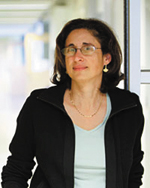 Professor of Neurobiology, Brandeis University
Professor of Neurobiology, Brandeis University
Department of Biology, M/S 008
Brandeis University
415 South Street
Waltham, MA 02454
Phone: 781-736-2680
Email: birren@brandeis.edu
Web:http://www.bio.brandeis.edu/faculty/birren.html
- How the brain loses its balance in autism and other disorders (P)
- Balancing excitation and inhibition in the nervous system: Building a brain that works and a heart that doesn't work too hard (G)
- Developmental regulation of excitation and inhibition in the mammalian nervous system (S)
Professor in the Department of Biology, Neuroscience Program Volen Center for Complex Systems National Center for Behavioral Genomics Brandeis University Susan Birren is a professor of Biology and Neuroscience and a member of the Volen Center for Complex Systems at Brandeis University. She received her Ph.D. in Biological Chemistry from UCLA and carried out postdoctoral work in Neuroscience at the California Institute of Technology where she became interested in the development of the mammalian nervous system. Her current research addresses how the nervous system establishes and maintains activity patterns at levels that allow normal function. This work focuses on two critical physiological systems- the brain and the heart. Disruptions in the balance of excitatory and inhibitory neural activity have dire consequences in each of these systems. In the brain the loss of such homeostasis can lead to epilepsy or to developmental disorders such as autism. In the cardiac system, imbalances in excitation and inhibition underlie a range of cardiovascular disorders including hypertension and heart failure.
National Cancer Institute -
Sigma Xi Lecturer
 Robert Clarke
Robert Clarke
Professor and Dean for Research
Georgetown University Medical Center
3970 Reservoir Rd NW
Washington, DC 20057
Phone: 202-687-9364
Fax: 202-687-2085
E-mail: clarker@georgetown.edu
Web: http://clarkelabs.georgetown.edu/res_robert
- Hormones and breast cancer (P,G,S)
- Modeling resistance to hormone based therapies in breast cancer (G,S)
- What can we learn about breast cancer by combining mathematics and computer science in a systems biology approach to research? (P,G,S)
Dr. Robert Clarke is a Professor of Oncology at Georgetown University Medical Center and an elected Fellow of the Royal Society of Chemistry, the Royal Society of Medicine, and the Royal Society of Biology (U.K.). A native of Northern Ireland, he earned a D.Sc. in 1999, a Ph.D. in 1986, and a M.Sc. in 1982 (each in Biochemistry) from the Queen's University of Belfast, and a B.Sc. (Biological Sciences) in 1980 from the University of Ulster. Dr Clarke completed his postdoctoral training in 1988 as a Breast Cancer Study Group Fellow at the Medical Breast Section of the National Cancer Institute, N.I.H. He joined the Faculty at Georgetown University in 1989, where he served as Secretary/Treasurer of the Georgetown University Faculty Senate (2004-2007). He serves on the editorial board of over a dozen peer review journals and he is currently chair of the N.I.H. Basic Mechanisms of Cancer Therapeutics grant review panel (2011-2013). Dr. Clarke studies how hormones and growth factors affect breast cancer. Focusing initially on the interactions among hormones and anticancer drugs, his work expanded to include the cellular and molecular mechanisms that explain how breast cancers become resistant to hormone and cytotoxic drug chemotherapies. He and his colleagues developed a series of hormone resistant breast cancer models that are widely used in the field. Dr. Clarke is currently developing and applying novel bioinformatic methods in translational breast cancer studies. Taking a systems biology approach, he and his collaborators have recently described a novel molecular signaling network that incorporates the unfolded protein response to endoplasmic reticulum stress. This signaling network contributes directly to the hormonal regulation of breast cancer cell proliferation and cell death. Dr. Clarke has authored/co-authored over 225 publications and he has several patents, mostly in the field of breast cancer research.
Ted Goebel
Associate Professor of Anthropology,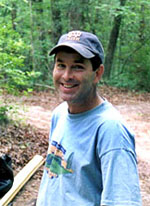 Professorship in First Americans Studies, and Associate Director, Center for the Study of the First Americans at Texas A&M University
Professorship in First Americans Studies, and Associate Director, Center for the Study of the First Americans at Texas A&M University
Department of Anthropology
Texas A&M University
College Station TX 77843
Phone: 979-862-4544
Email: goebel@tamu.edu
- The Ice-Age Dispersal of Humans to the Americas: Do Stones, Bones, and Genes Tell the Same Story? (P.G)
- The Search for the Origins of the First Americans: A New Prehistory of the Bering Land Bridge (P,G)
- Humans at the End of the Ice Age: Coping with Climate Change, Circa 10,000 BC (P,G)
Ted Goebel is an archaeologist who studies the Ice Age dispersal of modern humans to the Americas. His field work has been primarily in Siberia, Alaska, and the intermountain west of the United States, and he has investigated archaeological sites spanning from more than 50,000 years ago to 10,000 years ago. He earned his B.A. degree from Washington and Lee University in 1986, and his Ph.D. degree from the University of Alaska, Fairbanks in 1993. Goebel's dissertation focused on the emergence of modern humans and the Middle-to-Upper-Paleolithic transition in Siberia. Since then, his research has investigated the peopling of Beringia. He has excavated important archaeological sites containing some of the earliest evidence of humans in Beringia, and most recently directed field research at Serpentine Hot Springs, the Ice Age archaeological site yet found on the Bering Land Bridge itself. This site is significant in that it contains the first dated fluted spearpoints in Alaska, a hallmark of Clovis and other Paleoindian cultures in temperate North America. In the Great Basin of the western U.S., Goebel's research has focused on the transition from the Pleistocene to the Holocene, a period of significant climate change and human adaptation. Since 2000, he has directed excavations at the multi-layered Bonneville Estates Rockshelter (a dry cave in eastern Nevada), which contains a series of well-preserved cultural layers spanning from about 13,000 years ago to historic times. Goebel's research has been reported in a series of journal articles in Science, Current Anthropology, and Journal of Archaeological Science. Currently Goebel is Professor of Anthropology and Texas A&M University. He holds the Endowed Professorship in First Americans Studies and is Associate Director of the Center for the Study of the First Americans.
Theodore Goodson, III
The Richard Bernstein Collegiate Professor of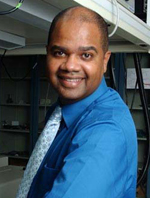 Chemistry, University of Michigan
Chemistry, University of Michigan
Phone: 734-647-0274
Email: tgoodson@umich.edu
Website: http://ww.umich.edu/~goodgrp/
http://www.umich.edu/~michchem/faculty
/goodson/index.html
- New Approaches to Energy Harvesting and Energy Storage with Organic Materials (P,G,S)
- Quantum Sensing with organic materials (G,S)
- Optical limiting, New materials, Applications, and the future (G,S)
Theodore Goodson III received his B. A. in 1991 from Wabash College and earned his Ph.D. in Chemistry at the University of Nebraska-Lincoln in 1996. After postdoctoral positions at the University of Chicago and at the University of Oxford, he accepted a position as Assistant Professor of Chemistry at Wayne State University in 1998. In 2004 he moved to the University of Michigan as Professor of Chemistry. In 2008 he was appointed as the Richard Barry Bernstein Professor of Chemistry at the University of Michigan. Dr. Goodson’s research centers on the investigation of nonlinear optical and energy transfer in organic multi-chromophore systems for particular optical and electronic applications. He has investigated new quantum optical effects in these systems as well as fundamental excitations in small metal topologies. Dr. Goodson’s awards include the Army Research Young Investigator Award, National Science Foundation CAREER Award, National Science Innovation Award, Percy Julian Award, Alfred P. Sloan Research Fellowship, Camille Dreyfus Teacher-Scholar Award, Lloyd Ferguson Young Scientist Award, Burroughs Welcome Fund Award, American Chemical Society Minority Mentorship Award, University Faculty Recognition Award, College of Science Teaching Award, and a National Academy of Sciences Ford Postdoctoral Fellowship. Dr. Goodson has been a Senior Editor for The Journal of Physical Chemistry since 2007. He has served on the Committee of Institutional Cooperation and the Editorial Advisory Board of the Journal of the American Chemical Society. Dr. Goodson has published over 110 scientific publications and more than 150 invited talks.
Mark Hernandez
P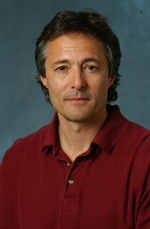 rofessor of Environmental Engineering and Director of the Colorado Diversity Initiative, University of Colorado, Boulder
rofessor of Environmental Engineering and Director of the Colorado Diversity Initiative, University of Colorado, Boulder
Email: Mark.Hernandez@Colorado.Edu
Facsimile: 303-492-7317
- Aerobiology, the final frontier for environmental engineers. How molecular biology is rapidly changing our views of the air we breathe at home, in transit, and at work (G,S)
- The Demography of Academic Neighborhoods and the Emerging Culture of Missing Mentors in our Research Universities (P,G,S)
Mark Hernandez became a registered professional civil engineer after attaining all of his degrees from the College of Engineering at the University of California at Berkeley. After a post-doc tenure in environmental microbiology (also at Berkeley) and several years of professional practice, he joined the University of Colorado faculty in 1996, where he is a professor in the Department of Civil, Environmental and Architectural Engineering. Dr. Hernandez is an expert on characterizing and controlling biological aspects of air pollution —both indoors and out—and serves the National Academy of Science through reviewing risk assessments of new biological defense laboratories being constructed by the US military and the Department of Homeland Security. With respect to environmental investigations, his aerobiology work has focused on large-scale disasters including bioaerosols generated by major metropolitan floods, the quarantined City of New Orleans following Hurricane Katrina, and coastal Louisiana following the Horizon oil spill. Dr. Hernandez. He also serves as a faculty director of the Colorado Diversity Initiative, which coordinates major diversity efforts among college science, math, and engineering departments with a focus on promoting underrepresented students through graduate schools and into the professorate.
Luis Herrera-Estrella
Director of the National Laboratory for Genomics of Biodiversity and Professor of the Department of Plant Genetic Engineering, Centro de Investigación y de Estudios Avanzados del IPN
Phone: (52-462) 623-9660
Email: lherrera@ira.cinvestav.mx
- The Impact of Biotechnology on Current Life" or "Release of transgenic crops in a center of genetic diversity: The case of transgenic corn in Mexico" (P)
- Evaluating the RoadMap as support for risk analysis of the release of GMOS (G)
- Molecular mechanism that mediate changes in root system architecture in response to Pi deprivation" "Signaling during the phosphate deprivation response in Arabidopsis" (S)
National Academy of Engineering Lecturer
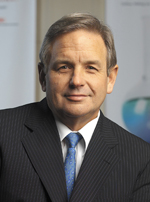 Charles O. Holliday, Jr.
Charles O. Holliday, Jr.
Chairman of Bank of America, former Chairman, former Chief Executive Officer and a former director of E. I. du Pont de Nemours and Company (DuPont)
Email: valerie.binder@bankofamerica.com
Website:http://mediaroom.bankofamerica.com/
phoenix.zhtml?c=234503&p=irol-govBio&ID=200155
Charles O. Holliday, Jr. is chairman of the board of directors of Bank of America. He has served as a director since September 2009. He is the former chairman of the board of directors of E.I. du Pont de Nemours and Co., a position he had held for approximately 10 years. He served as chief executive officer of DuPont from 1998 until 2008. He joined DuPont in 1970 as an engineer and held various positions throughout his tenure.
Since 2007, Holliday has served as a member of the board of directors of Deere & Co. and as a member of the board's audit and corporate governance committees. He is chairman emeritus of Catalyst, a leading nonprofit organization dedicated to expanding opportunities for women and business, and chairman emeritus of the board of the U.S. Council on Competitiveness, a nonpartisan, nongovernmental organization working to ensure U.S. prosperity.
Holliday is a founding member of the International Business Council and a member of the National Academy of Engineering. He also previously served as chairman of the following organizations: the Business Roundtable's Task Force for Environment, Technology and Economy, the World Business Council for Sustainable Development, The Business Council, and the Society of Chemical Industry - American Section.
He received a bachelor's degree in industrial engineering from the University of Tennessee and received honorary doctorates from Polytechnic University in Brooklyn, New York and from Washington College in Chestertown, Maryland.
Anthony Johnson
Director of the Center for Advanced Studies in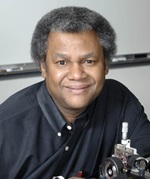 Photonics Research and Professor of Physics and Computer Science & Electrical Engineering, University of Maryland Baltimore County (UMBC)
Photonics Research and Professor of Physics and Computer Science & Electrical Engineering, University of Maryland Baltimore County (UMBC)
Center for Advanced Studies in Photonics Research (CASPR)
University of Maryland Baltimore County (UMBC)
TRC Bldg., Rm 029, 1000 Hilltop Circle
Baltimore, MD 21250
Phone: 410-455-8440
Email: amj@umbc.edu
Web: http://www.umbc.edu/caspr/johnson%20bio.html
- Photonics, Diversity and Mentoring -- Over 30 Years of Experiences and Strategies on an African-American Physicist(P,G,S)
- Ultrafast Optical Characterization of Novel Nanoscale Materials(G,S)
Anthony M. Johnson has been the Director of the Center for Advanced Studies in Photonics Research (CASPR) and Professor of Physics and Computer Science & Electrical Engineering at the University of Maryland Baltimore County (UMBC) since 2003. He received a B.S. in Physics (1975) from Polytechnic Institute of New York and a PhD in Physics (1981) from City College of the City University of New York. His PhD thesis research was conducted at AT&T Bell Laboratories in Murray Hill, NJ, with support from the Bell Labs Cooperative Research Fellowship Program for Minorities. He was a Distinguished Member of Technical Staff in the Photonic Circuits Research Department at Bell Labs in Holmdel, NJ, where he spent 14 years before joining New Jersey Institute of Technology (1995), where he was Chairperson and Distinguished Professor of Physics until 2003. His current research interests include the ultrafast photophysics and nonlinear optical properties of bulk, nanostructured, and quantum well semiconductor structures, ultrashort pulse propagation in fibers and high-speed lightwave systems. He served as a member of the Board of Directors of the American Physical Society (APS) [94-97], the IEEE Lasers & Electro-Optics Society, currently called the Photonics Society [93-95], the Optical Society of America (OSA) [93-96 & 00-03] and the American Institute of Physics (AIP) [02-08] He was elected the 2002 President of the OSA; Editor-in-Chief of Optics Letters (95-01); member of the DOE Basic Energy Sciences Advisory Committee [BESAC] (99-08); member of the NRC/NAS Committee on AMO2010: Atomic, Molecular and Optical Science (05-06); and member (05-08) and Chair (09-10) of the IEEE Photonics Society Fellows Evaluation Committee. He is an elected Fellow of the APS [1995], the OSA [1991], the IEEE [2000], the American Association for the Advancement of Science (AAAS) [1996] and the National Society of Black Physicists (NSBP) [1992].
W. R. (Bill) Klemm
Professor of Neuroscience, Texas A&M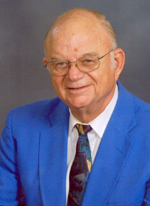 University
University
Email: wklemm@cvm.tamu.edu
Phone: 979-589-2665
Website: www.cvm.tamu.edu/wklemm
- Atoms of Mind. The "Ghost in the Machine" Materializes (P,G)
- What Teachers Can Do to Improve Student Learning and Memory (G,S)
- Better Grades, Less Effort (G,S)
Dr. Bill Klemm is an internationally recognized neuroscientist with provocative new theories on how brains think, the nature of consciousness, the cause of dreaming. and the issue of human free will. These ideas derive from his four decades of research at all levels of neuroscience, molecular, cellular, system, and cognitive. He has published some 425 publications, which includes 15 books, and 45 book chapters. He has served on the official Editorial Boards of six scientific research journals and has been a peer reviewer for approximately 1,000 manuscripts for 45 scholarly journals. His learning and memory lectures are derived from his innovations in on-line collaborative learning, in memory research, and in Federally funded middle school educational outreach programs. Known as the "Memory Medic," Dr. Klemm has written several books on improving memory and writes on that topic in his Web blog and newspaper columns.
Rikk G. Kvitek
Professor, California State Unversity, Monterey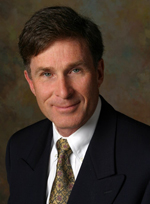 Bay (CSUMB)
Bay (CSUMB)
Email: rkvitek@csumb.edu
Phone: 831-582-3529
Website: http://seafloor.csumb.edu/
- Peeling Back the Blue: how we map and use 3D visualization to reveal and learn from earth's hidden seafloor landscapes.(P,G,S)
- From "You've Got to Be Kidding!" to "Ah-Ha!": Hope for our oceans through insight and innovation.(P,G,S)
- Mediation of the foraging behavior, spatial distribution and ecological influence of sea otters and shorebirds by harmful algal blooms. (P,G,S)
- Destruction and recovery in polar seas: The effects of ice scour disturbance on Arctic and Antarctic seafloor communities (P,G,S)
Rikk Kvitek is a Professor in the Division of Science and Environmental Policy, CSU Monterey Bay, where he directs the CSUMB Seafloor Mapping Lab. Rikk obtained his Bachelor of Science in zoology from the University of Michigan, a Masters at Moss Landing Marine Labs, and PhD in zoology from the University of Washington. His research with whales, sea otters, walrus, sea birds, fish, ice bergs, submarine canyons and numerous invertebrates from the Arctic to the Antarctic has brought novel insights to the fields of benthic ecology, seafloor disturbance, habitat mapping and species relations, and the effects of harmful algal bloom toxins in marine food chains. Beginning with SCUBA, Dr. Kvitek quickly realized that detailed birds-eye views of the seafloor could do for marine research what aerial photography had done for terrestrial studies, and now specializes in bringing seafloor habitats to life with high resolution remote sensing and 3D visualization.
Diandra L. Leslie-Pelecky
Professor of Physics, West Virginia University 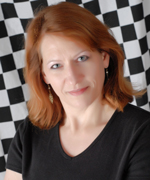
Email: diandra.leslie-pelecky@mail.wvu.edu
Phone: 214-966-8446
Website: http://www.drdiandra.com
- The Science of Speed: Faster, Stronger and Safer (P,G)
- Materials at 200 mph: Faster, Stronger and Safer(P,G)
- Building the Perfect World: One (Very) Small Step at a Time (P,G)
- Biomedical Applications of Magnetic Nanoparticles (G,S)
Diandra Leslie-Pelecky earned undergraduate degrees in physics and philosophy from the University of North Texas and a Ph.D. in condensed matter physics from Michigan State University. After fourteen years at the University of Nebraska, she recently became Director of the West Virginia Nano Initiative and Professor of Physics at West Virginia University. There, her research seeks new ways to apply magnetic nanoparticles to make chemotherapy more efficient and decrease the side effects.
Her passion for making science understandable and relevant to the average person brought her to a second laboratory: the racetrack. The fact is that you can't win races without getting the math and science right. Her book, The Physics of NASCAR, was excerpted by TIME magazine and her work has been featured in everything from the New York Times to Sporting News magazine. She blogs at www.buildingspeed.org, explaining the math and science behind current events in motorsports.
Paul E. Minnis
Professor of Anthropology, University of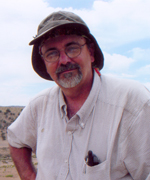 Oklahoma
Oklahoma
Email: minnis@ou.edu
Phone: 405-325-2519
- Mysteries or Lessons: Archaeology of the Ancient Southwest(P,G,S)
- Indigenous Humans and History in Ecology(P,G)
- Utilitarian Archaeology: "Mining" the Past for the Future (S)
- Develop of regional System in the North American Southwest (P,G,S)
Paul Minnis' research focuses on archaeology and prehistoric ethnobotany, especially of the U.S. Southwest and northwestern Mexico.
Although he has conducted research throughout the "Southwest," for the past two decades he has codirected an archaeological project to understand the organization and political ecology of Casas Grandes, one of the most important ancient communities of northwestern Mexico and the U.S. Southwest. He has also written on the practical uses of archaeology.
Minnis' ethnobotanical research centers on the analysis of plant remains from archaeological sites in order to better understand how ancient people used their environment and the effects they had on the structure and dynamic history of natural environments. Minnis has served as President of the Society of Ethnobiology, Treasurer and Press Editor for the Society for American Archaeology, and co-founder of the Southwest Symposium. A Phi Beta Kappa graduate of the University of Colorado with graduate degrees from the University of Michigan, he has received the E.K. Janaki Ammal Medal from the Society of Ethnobonatists (India) and three Presidential Recognition Awards from the Society for American Archaeology.
Dennis K. Norman
Faculty Chair, Harvard University Native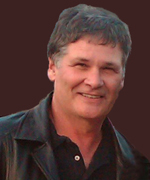 American Program
American Program
Email: dnorman@partners.org
Phone: 617-530-0550
- American Indian Health: A History of Disparities (P,G,S)
- Twenty Years of Nation Building in Higher Education (P,G,S)
Dennis Norman is the Chief of Psychology, Massachusetts General Hospital, Faculty Chair for the Harvard University Native American Program, and Associate Professor of Psychology, Harvard Medical School. He is Board Certified in both Clinical and Child and Adolescent Psychology. He received his doctorate in Human Development, Counseling and Consulting Psychology from Harvard University and also has an M.A. in Child Development from Tufts University, Child Study Department. His special interest has been cross cultural psychology, coping with chronic illness and human development with a special focus on American Indian/Alaskan Natives. He is Past Chair of the Board of Registration for Psychology, Commonwealth of Massachusetts. Dr. Norman directs the Harvard University Native American Program Health Initiative teaches field research for Native communities at the Kennedy School of Government and the Harvard Graduate School of Education.
Christine Ortiz
Dean for Graduate Education
Professor of Materials Science and Engineering
Massachusetts Institute of Technology
RM 13-4022 (Research)
RM 3-132 (ODGE)
77 Massachusetts Avenue
Cambridge, MA 02139 USA
Email : cortiz@mit.edu
Phone: 617-253-1957
Web (Research) :http://web.mit.edu/cortiz/www/
Web (ODGE): http://web.mit.edu/odge
- Nanomechanics of Musculoskeletal Tissues
- Natural Armor: An Untapped Encyclopedia of Engineering Designs
- Biological Structural Materials: Interdisciplinary Convergence of Engineering, Architecture and Evolutionary Biology
Gregory M. Paoli
President, Decisionalysis Risk Consultants, Inc.
Decisionalysis Risk Consultants
1831 Yale Ave
Ottawa, ON K1H 6S3
Canada
Phone: 613-260-1424
Email: gpaoli@RiskSciencesInt.com
Web: http://analyzerisk.com/bio_gpaoli.html
- Key Themes from the NRC Report, Science and Decisions: Advancing Risk Assessment (P, G, S)
- Accounting for Public Risks in Enterprise Risk Management Systems (P, G, S)
Greg Paoli serves as Principal Risk Scientist at Risk Sciences International, a consulting firm specializing in risk assessment, management and communication in the field of public health, safety and risk-based decision-support. Greg has experience in diverse risk domains including toxicological, microbiological, and nutritional hazards, air and water quality, climate change impacts, medical and engineering devices, as well as emergency planning and response for natural and man-made disasters. He specializes in probabilistic risk assessment methods, the development of risk-based decision-support tools and comparative risk assessment. Mr. Paoli has served on a number of expert committees devoted to the risk sciences. He was a member of the U.S. National Research Council committee that issued the 2009 report, Science and Decisions: Advancing Risk Assessment. He serves on the Canadian Standards Association Technical Committee on Risk Management, advisory committees of the National Roundtable on the Environment and the Economy, an NRC Standing Committee on the Use of Public Health Data at the Food Safety and Inspection Service, and has served on several expert committees convened by the World Health Organization. He has provided training in risk assessment methods and consulting services in many countries around the world. Greg is a member of the Editorial Board of Risk Analysis: An International Journal. Greg holds a Bachelor's Degree in Electrical and Computer Engineering and a Master's Degree in Systems Design Engineering from the University of Waterloo.
Jose-Antonio de la Peña
Full professor Instituto de Matemáticas,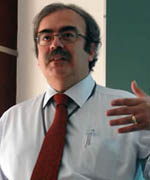 Universidad Nacional Autónoma de México (UNAM)
Universidad Nacional Autónoma de México (UNAM)
Instituto de Matemáticas UNAM
Ciudad Universitaria
Mèxico City
Mexico
Phone: +5255-53228131
Email: jap@matem.unam.mx
- Mathematics in the movies (P)
- Mathematics as a human endeavor (G)
- Scientific and social networks: a mathematical view (P,G,S)
Dr. de la Peña received his doctoral degree in Mathematics from the National University of Mexico at 1983 and made a postdoctoral stay at Zurich from 1984 to 1986. Since then he has a research position at Instituto de Matemáticas of UNAM, institution he directed from 1998 to 2006. His areas of expertise are the representation theory of algebras, the spectral theory of graphs and network theory where he has published more than 100 papers in indexed journals with more than 800 citations. He has supervised 7 doctoral thesis, two of which won the best doctoral dissertation prize of the Mexican Academy of Sciences. He has published several text books in mathematics at pre-graduate, graduate and postgraduate levels, dozens of articles for popularization of science and directed the design and construction of the Hall of Mathematics at the Museum of Science Universum (1989-1992). He has been invited as lecturer to countries in North and South America, Europe and Asia.
He was President of the Mexican Mathematical Society (1988-1990), President of the Mexican Academy of Sciences (2002-2004), President of the Mathematical Union of Latin America and the Caribbean (2001-2008). He is member of the Mexican Academy of Sciences, the Sigma-Xi Society and several mathematical societies. Among other distinctions he won the TWAS Award in Mathematics (2002), the National Prize of Mexico in Science and Arts (2005) and the Humboldt Prize (2006). Since 2007 he is Deputy Director General for Science of the National Council for Science and Technology of Mexico.
William Tad Pfeffer
Professor, Institute of Arctic and Alpine Research and Department of Civil, Environmental, and Architectural Engineering, University of Colorado
Phone: 303-258-7035
Email: pfeffer@tintin.colorado.edu
- Future Sea Level: Where do we go from here? (P)
- Land Ice and Sea Level: icebergs, rivers, and new coastlines (G)
- Land Ice Instabilities: How glaciers tip the scales toward faster sea level rise (G,S)
John J. Shea
Professor, Stony Brook University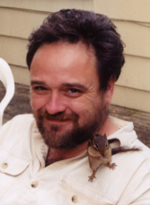
Phone: 631-632-7665
Email: John.Shea@sunysb.edu
Website: http://www.stonybrook.edu/anthro/Shea/ Shea%20Personal%20Webpage.htm
- Myths of "Modern" Human Origins (G)
- The Handaxe's Tale: Stone Tools and Human Evolution (G)
John J. Shea is Professor of Anthropology at Stony Brook University in New York and Research Associate of the Turkana Basin Institute in Kenya. He is an alumnus of Boston University (BA 1978) and Harvard University (Ph.D. 1991). Shea’s research focuses on the archaeology of human evolution, namely the origin of our species, Homo sapiens, and the extinction of the Neanderthals. He is an expert at making, using, and analyzing stone tools whose work has been featured in more than a dozen television documentaries and in exhibits in the American Museum of Natural History and the National Museum of Natural History (Smithsonian Institution). Shea has conducted archaeological surveys and excavations in Israel, Jordan, Eritrea, Ethiopia, Tanzania, and Kenya. His most recent publications challenge the widely-held theory that Homo sapiens became “behaviorally modern” along the course of our evolution, using evidence from the analysis of stone tools from Eastern Africa.
Paul D. Simmons
Clinical Professor, Univ Louisville School of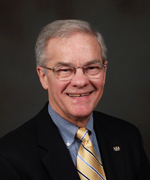 Medicine
Medicine
Phone: 502-852-1308
Email: paul.simmons@louisville.edu
- "Faith in the Public Square: Should we teach religion in the schools?" (P,S)
Simmons is a medical ethicist who has training in theology and philosophy, doing post-doctoral work at Cambridge and Princeton Universities.He is involved in the national and international debates through speaking and writing on topics such as abortion, genetics, in-vitro fertilization, stem-cell research, elective death and health care.His special interest is in the relation of religion, science and public policy. He brings theological insights into conversation with scientific and legal dimensions of each issue.
Michael Summers
Professor and Investigator, University of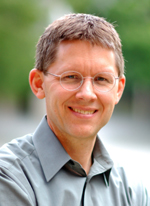 Maryland Baltimore County, and Howard Hughes Medical Institute
Maryland Baltimore County, and Howard Hughes Medical Institute
Phone: 410-227-4200
Email: summers@hhmi.umbc.edu
Web: www.hhmi.umbc.edu
- Mentoring and Retention of Minority Scientists (P,G,S)
- Structural basis for HIV-1 assembly and genome packaging in infected cells (G,S)
<p Dr. Michael F. Summers received his B.S. degree in Chemistry from the University of West Florida in 1980, his Ph.D. degree in 1984 from Emory University, and was a postdoctoral fellow at the NIH from 1984-1987. He joined the faculty at the University of Maryland Baltimore County as an Assistant Professor in 1987, and was promoted to Associate Professor with tenure in 1991 and to Full Professor in 1996. In 1994 he was appointed as an Investigator with the Howard Hughes Medical Institute. He currently serves on the Advisory Council for the NIH Office of AIDS Research. He is an Associate Editor for the Journal of Molecular Biology and a member of the editorial advisory board of the Journal of Biomolecular NMR. Dr. Summers' research focuses on NMR studies of proteins and macromolecular interactions, with a major emphasis on the structural proteins that comprise the human immunodeficiency virus (HIV-1). His laboratory typically includes large numbers of students from diverse backgrounds, and he has led efforts to develop programs for retaining minority students in the sciences. Dr. Summers is a recipient of the Emily M. Gray Mentoring Award of the Biophysical Society, the ASBMB Award for Exemplary Contributions to Education, the Mentor Award of the American Association for the Advancement of Science, American Society for Microbiology Hinton Award for Mentoring, the White House Presidential Award for Science, Mathematics and Engineering Mentoring, the ACS Maryland Chemist of the Year award, and the Protein Society (DuPont-Merck) Young Investigator Award.
John A. Turner
Research Fellow, National Renewable Energy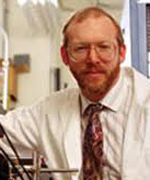 Laboratory
Laboratory
Phone: 303-275-4270
Email: John.Turner@nrel.gov
Website: http://www.nrel.gov
- Hydrogen Production from Photoelectrochemical Cells: Theoretical considerations and experimental results (S)
- Frontiers, Opportunities and Challenges for a Hydrogen Economy (P,G)
John A. Turner, Ph. D., is a Research Fellow at the National Renewable Energy Laboratory. His research is primarily concerned with enabling technologies for the implementation of hydrogen systems into a sustainable energy infrastructure. This includes direct conversion systems (photoelectrolysis) for hydrogen production from sunlight and water, materials for advanced fuel cell membranes, and corrosion protection for fuel cell metal bipolar plates. His monolithic photovoltaic-photoelectrochemical device has the highest efficiency for any direct conversion water splitting device (>12%). He is the author or co-author of over 140 peer-reviewed publications in the areas of photoelectrochemistry, fuel cells, batteries, general electrochemistry and analytical chemistry.
Bryant W. York
Professor, Portland State University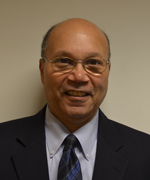
Phone: (503) 725-9521
Email: york@cs.pdx.edu
Website: http://www.cs.pdx.edu/~york
- Computatational Thinking, Visualization and the Advancement of Science in the Twenty- First Century (G)
- Prime Number Graphs, Factoring, and Self-similarity (S)
Dr. York's educational background includes the A.B. in mathematics from Brandeis University, the M.S. in management from MIT, and the M.S. and Ph.D. in computer science from the University of Massachusetts - Amherst. He has held industrial research positions at the IBM Research Labs and at Digital Equipment Corporation's Artificial Intelligence Technology Center. He is currently professor in the Department of Computer Science at Portland State University; formerly associate professor and research director for the College of Computer Science at Northeastern University (1991 – 2001); and associate professor of computer science at Boston University (1986 – 1990). His current interests include Clifford Algebra neural networks; Factorization of large integers via the method of searching prime number graphs; and Models for broadening participation of underrepresented groups in computing and information technology.